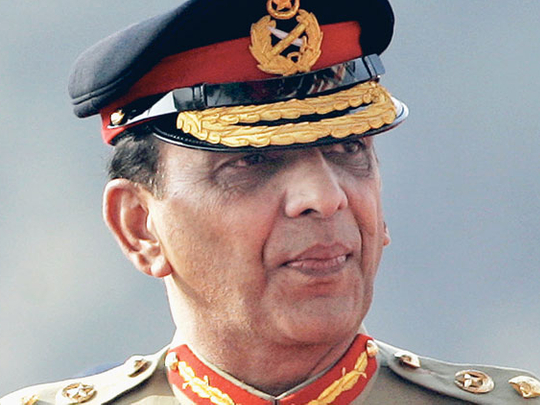
Just as horses must never be changed midstream, generals leading a major battle should not be sent home before the campaign ends.
With that logic in mind, Pakistan's Prime Minister Yousuf Raza Gilani last week extended the tenure of General Ashfaq Parvez Kayani as chief of the country's army for another three years, though he had been due to retire in November this year.
Gilani was criticised for this decision even before it was announced. Pakistan's long history of military rule is responsible for lingering fears that powerful military generals will seek to position themselves to take charge of policy making. The critics of Kayani's tenure extension see this as the first step towards a further consolidation of the military's position in Pakistan's upper echelons of power.
This is not necessarily the case. Times have changed to the extent that this received wisdom about the military no longer applies.
There is nothing in the Constitution or law books that prohibits the extension of the chief of staff's tenure.
Even in political terms, he who argues against the move has no leg to stand on. The extension of Kayani's tenure was approved by an elected government that is determined to win the war against the Taliban, who continue to challenge the authority of the state.
In his speech announcing the extension of Kayani's tenure, Gilani spoke of the need to continue the campaign until victory is achieved. This is the only way that Pakistan's interests can be served.
No compromise
For the moment, the war for the future of Pakistan cannot be jeopardised in any way — and certainly not by changing the military's top leadership.
If a new chief were installed, he would definitely take some time to settle into the job and get up to speed. It takes considerable familiarity to be able to cope with the epic proportions of the threat faced by Pakistan.
Just a day after the announcement on Thursday, it emerged that Maulana Fazlullah, the former leader of the Taliban in Swat, is aiming to assemble a group of suicide bombers to attack targets across Pakistan.
In a video message, Fazlullah vowed to hit both civil and military targets, in the latest challenge to the country's security interests. The emergence of the video, less than two months after reports of Fazlullah's death, once again highlights the threat posed by the Taliban and their cohorts.
There are other issues that need to be factored into the debate over Kayani's extended tenure. For example, it is abundantly clear that any weakening of Pakistan's civil structure will be most likely due to the failure of the country's political elite to set a new course for the future. Lessons from the circumstances surrounding past military coups highlight the extent of the political breakdown in civil structures that preceded a military takeover.
Governmental weakness
In today's environment, critics of the extension of Kayani's tenure need to take closer stock of Pakistan's widespread breakdown of governance. This poses a far greater threat to the country's political future than the extension of the military chief of staff's tenure.
Lessons must be learned from Pak-istan's history. Most of the generals who led coups and seized power did so during their first terms as commanders of the military. Today, the military is back in its barracks and Kayani has shown not the slightest sign of any ambition to overthrow Pakistan's government.
Going forward, the outcome of the fight against the Taliban will have a far greater impact on the future of liberal political values in Pakistan than the fact that a general has been asked to serve his country for another three years as the military's chief of staff.
Farhan Bokhari is a Pakistan-based commentator who writes on political and economic matters.









